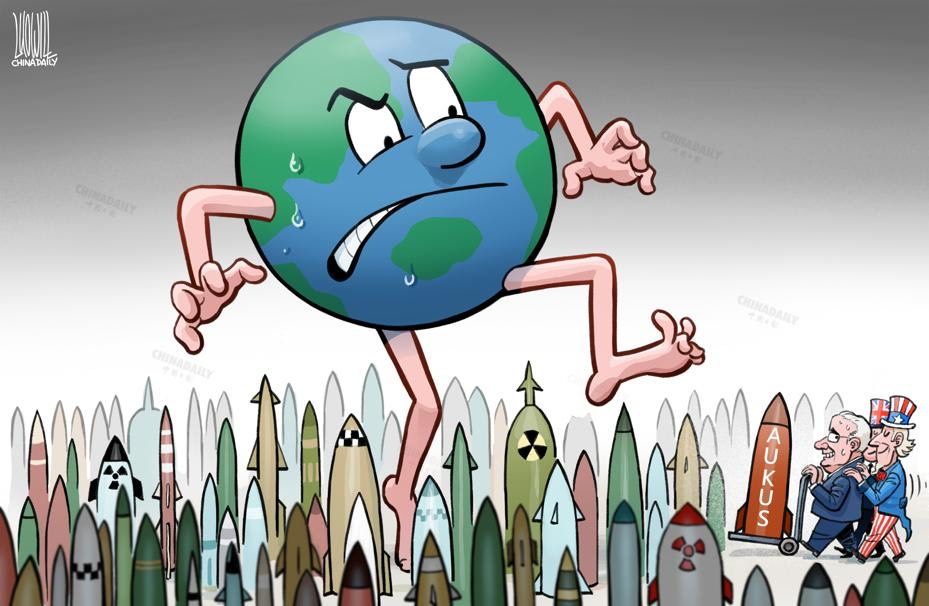MARKET PERSPECTIVE
By J Mulraj
Mar 6-12, 2023
In a world of transitions
The world is undergoing several transitions. Each transition needs to be planned, as it will be very disruptive.
One transition is in the energy sector. The US and the collective west, paying a lot of heed to the narrative of climate change, are seeking to transition away from fossil fuels to a new infrastructure of green energy. This is, and will be, highly disruptive. Coal mines, oil rigs, refineries, gas stations, etc., will need to be phased out, or shut down, with the attendant consequences for labour, shareholders, supply chains, distribution chains and lenders. There are also geopolitical and geostrategic consequences of this energy transition.
In pursuance of the environmental policy, one of the first acts of newly elected President, Joe Biden, was to stop further leasing of federal land for fracking. Through fracking, considered environmentally harmful, America had become energy independent. Soon after that, rising price of crude oil led to high price of gas (petrol), which became an issue for mid term polls, important enough for Biden to go abegging to MBS, the Saudi crown prince, to increase crude oil production. He didn’t. So the banning of leases, environmentally friendly, had geostrategic consequences.
Europe was pursuing renewable energy, and Germany, its largest economy, had also shut down its nuclear power plants. It was, however, still dependent for its economic success on Russian cheap oil/gas delivered via the two Nordstream pipelines. It was ill prepared to pick a fight with Russia, over Ukraine. Bereft of Russian oil/gas, Germany is in an environmental and economic mess. Environmentally, Germany has had to reopen coal mines (egad! dirty, dirty lignite coal, the worst type) to generate power which used to be produced by cleaner Russian gas. Economically, its industry has been made unviable after replacing cheap Russian gas with far too expensive LNG. The LNG has to be expensively purchased, converted to a liquid, (costly), transported on cryogenic ships, also expensive, then re-gassified (yet more cost) before consuming. German manufacturers like BMW, BASF and others are being compelled to relocate (including to China). A poorly planned transition.
Worse still, the Russian oil/gas hitherto supplied to Europe is now being supplied, via two Power of Siberia pipelines, to China. Geopolitically, this is the worst outcome as it brings together, through interdependent economic interests, the two arch enemies of USA.
A geopolitical blunder compounded by the foolishness of blowing up the Nordstream pipelines! Veteran, and reputed, journalist, Seymour Hersh, a Pulitzer prize winner, opines it was USA which blew it up. This act destroys any chance that Russian-EU economic ties can be mended in future, and so firmly ties the Sino-Russian Gordian knot.
Meanwhile Saudi Arabia, which hitherto priced its crude in US $, has now started selling it in Chinese yuan, thus making a serious dent in the petrodollar, a pillar of the greenback’s strength. And last week, its giant oil company, Saudi Aramco, decided to take a 10% stake in China’s Rongsheng Petrochemical Co, and to supply its associate with 480,000 barrels of oil per day, daily! So, geopolitically, Saudi Arabia, once a staunch ally of America, is now getting closer to China.
The energy transition also includes a shift towards green hydrogen, which is hydrogen generated by low carbon power.in India, Reliance, Adani, in the private sector, and IOC, NTPC, GAIL in the public sector, are some of the companies investing in green hydrogen! Under the National Green Hydrogen Mission. The auto industry is moving towards electric vehicles, though could be constrained by scarcity of rare earth elements for batteries. Hydrogen powered cars are also being developed. Generating an endless supply of power using nuclear fusion, is still a decade away. Meanwhile. Small modular nuclear reactors are an option; however, they depend on Russia for supply of enriched uranium, and Russia is the most sanctioned country by the US.
The energy transition has a lot of challenges and, so far, has not been well planned.
Another transition is in the field of finance and money. There are multiple mines here. Bank are collapsing, inflation is running amok, interest costs have been ramped up fast to try and tame it, the world is over dependent on debt, and the US is hitting a debt ceiling. Global GDP is $ 105 trillion. Global debt is $ 300 trillion, nearly 3X its income. Refinancing debt when it falls due is a game of passing the debt parcel, the only difference being that the parcel could explode anytime.
US GDP is $ 23 trillion and its debt, hitting the Congressional ceiling, is $ 31 trillion, nowhere near the global 3X number. Biden needs Congressional approval to raise it. US Congress, controlled by Republicans, are sensibly asking Biden to jointly approve cuts on spending, before granting it. Biden is refusing, in a high stakes who-blinks-first race. (Luckily Blinken is out of it).
To complicate things further, a house Oversight Committee, led by Republican James Comer, has given evidence (bank statements) of receipts of $10 m. by several members of the Biden family, from China and other countries. These triggered a lot of ‘suspicious activity reports’ by banks, but no action on any. There are calls for impeachment, which is a political mine.
The US, and global, banking crisis isn’t over. US Community Banks, the main lenders for commercial real estate, are in danger. More than 800 stores are shutting down, including names like Walmart, Macy’s, Gap, Bed Bath & Beyond and others. In San Fransisco, vacancy rates for office space is at a record high of 30%. If community banks start failing, there is no money in FDIC to insure deposits. It is possible that authorities, unable to bail-out banks, may resort to bail-ins, ie, seize deposits of large customers.
A big mine in this minefield is the looming threat of de-dollarization. Saudi has agreed to sell its oil in yuan. So has Russia. There is a plan to have an alternate, BRICS currency and several countries have joined the alliance. However, with USD accounting for 80% of all trade, this mine is unlikely to explode soon. China has done little to inspire enough confidence in it to assume the mantle of a trusted global currency.
China, and several countries, are preparing for Central Bank issued Digital Currency (CBDC). As CBDC is programmable, it can be used to infringe on personal privacy, and to control spending. That is a huge danger.
What shape the new financial architecture will take is not clear. Perhaps it could lead to an end to fiat currencies which aren’t backed by assets. Maybe currencies would need to be backed by gold, or commodities, or other assets. If the US debt ceiling is not raised by month end, a US debt default could trigger another global crisis.
There is another huge, unexploded, mine, which can explode next week. Under a UN backed deal, Russian and Ukranian grain was allowed to be evacuated from the Black Sea, in order to stave off a global famine caused by wheat shortage. That agreement needs to be extended, by May 18. Russia is asking for its bank account to be unfrozen, so it can get paid for its exports. The collective west is stupidly playing the who-blinks-first game again. IF the agreement is not extended, the consequences would be unimaginably horrific. A famine in Africa, unable to afford higher wheat prices could lead to up to 2 m dying, unnecessarily. Before that, to a mass migration to Europe, which is still recovering, financially and socially, from the previous migration triggered by the Syrian war. African migration would be much larger.
China is navigating its own minefields. It has been hit by severe floods in Eastern China. The exodus of several foreign companies, such as Foxconn, has led to large unemployment. China’s debt, including the debt of its provincial Governments, is far worse than in USA. Its Ministry of Housing has, after a study, determined that China has 600 million residential buildings, enough to house 15 b. people! Local Governments are tearing down buildings, a complete loss for those who invested in them. Will it undertake a misadventure in Taiwan, to divert attention? If so, will the US intervene? The US has, myopically and foolishly, exhausted a lot of its weaponry by sending itbto Ukraine. It would, for example, take 7 years to replace the stock of Stinger missiles it sent to Ukraine. And, unmindful/nonchalant of its own debt ceiling, it has committed another $ 1.2 b in aid to Ukraine.
There are several other transitions, such as in healthcare (protein folding will cut costs), manufacture (AI, robotics, IoT, 3D printing will boost productivity and reduce waste) and other fields. There are other unexploded mines (Israel-Palestine, a super volcano in Yellowstone Park, the risk of a nuclear catastrophe at the Zaporizhzia power plant after qualified plant operators have been asked to leave).
Last week the BSE Sensex rose 973 points to close at 62027.
If I look up at the clouds, I see one silver lining, the possible end of the rising interest rate cycle. Stock markets are probably steady in anticipation of that. I am, however, reluctant to look up. There are far too many mines and I need to focus on the ground realities.
Picture Source: https://www.chinadaily.com.cn/a/202109/22/WS614a70fda310cdd39bc6a8e0.html
Comments can be emailed to jmulraj@asiaconverge.com










































COMMENTS